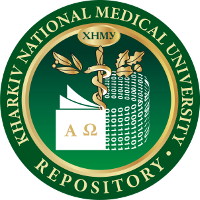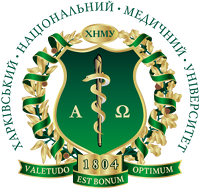Please use this identifier to cite or link to this item:
http://repo.knmu.edu.ua/handle/123456789/10969| Title: | Specifically chronic myeloid leukemia in the clinic's general internal medicine |
| Authors: | Otaigbe, Peace Augustine Kochubiei, Oksana Ashcheulova, Tetyana Кочубєй, Оксана Анатоліївна Кочубей, Оксана Анатольевна Ащеулова, Татьяна Вадимовна Ащеулова, Тетяна Вадимівна |
| Issue Date: | Nov-2015 |
| Publisher: | KhNMU |
| Citation: | Otaigbe Peace Augustine Specifically chronic myeloid leukemia in the clinic's general internal medicine / Peace Augustine Otaigbe, О. Kochubiei, T. Ashcheulova // Diagnostical methods in internal medicine and their ethical aspects : 5th Scientific Students’ Conference, Kharkiv, 12 of November 2015 : abstract book. – Kharkiv : KhNMU, 2015. – Р. 51–52. |
| Abstract: | Chronic myelogenous leukemia is a disease in which the bone marrow makes too many white blood cells. Chronic myelogenous leukemia (also called CML or chronic granulocytic leukemia) is a slowly progressing blood and bone marrow disease that usually occurs during or after middle age, and rarely occurs in children. Signs and symptoms of chronic myelogenous leukemia include fever, night sweats, and tiredness. Most people with CML have a gene mutation (change) called the Philadelphia chromosome. Tests that examine the blood and bone marrow are used to detect (find) and diagnose chronic myelogenous leukemia. The following tests and procedures may be used: Physical exam and history : An exam of the body to check general signs of health, including checking for signs of disease such as an enlarged spleen. A history of the patient’s health habits and past illnesses and treatments will also be taken. Complete blood count (CBC) with differential : A procedure in which a sample of blood is drawn and checked for the following: The number of red blood cells and platelets. The number and type of white blood cells. The amount of hemoglobin (the protein that carries oxygen) in the red blood cells. The portion of the blood sample made up of red blood cells.RGE Blood chemistry studies : A procedure in which a blood sample is checked to measure the amounts of certain substances released into the blood by organs and tissues in the body. An unusual (higher or lower than normal) amount of a substance can be a sign of disease. Bone marrow aspiration and biopsy : The removal of bone marrow, blood, and a small piece of bone by inserting a needle into the hipbone or breastbone. Apathologist views the bone marrow, blood, and bone under a microscope to look for abnormal cells. One of the following tests may be done on the samples of blood or bone marrow tissue that are removed: Cytogenetic analysis: A test in which cells in a sample of blood or bone marrow are viewed under a microscope to look for certain changes in the chromosomes, such as the Philadelphia chromosome. FISH (fluorescence in situ hybridization): A laboratory technique used to look at genes or chromosomes in cells and tissues. Pieces of DNA that contain a fluorescent dye are made in the laboratory and added to cells or tissues on a glass slide. When these pieces of DNA bind to specific genes or areas of chromosomes on the slide, they light up when viewed under a microscope with a special light. Reverse transcription polymerase chain reaction test (RT–PCR): A laboratory test in which cells in a sample of tissue are studied using chemicals to look for certain changes in the structure or function of genes. Research in CML has led the way in many facets of leukemia translational medicine, and the development of molecular monitoring is the latest in that trend. As molecular testing becomes both more available and standardized, cytogenetic testing may soon be performed routinely at diagnosis, with all further monitoring done by peripheral blood quantitative PCR until monitoring suggests an unusual event (an increasing BCR-ABL value that suggests relapse, or decreasing transcript numbers that suggest a myelodysplastic clone). This evolution of monitoring in CML may eventually lead the way for monitoring in all types of leukemia. |
| URI: | https://repo.knmu.edu.ua/handle/123456789/10969 |
| Appears in Collections: | Наукові роботи молодих вчених. Кафедра пропедевтики внутрішньої медицини № 1, основ біоетики та біобезпеки |
Files in This Item:
| File | Description | Size | Format | |
|---|---|---|---|---|
| Otaigbe Peace Augustine1.doc | 28 kB | Microsoft Word | View/Open |
Items in DSpace are protected by copyright, with all rights reserved, unless otherwise indicated.

